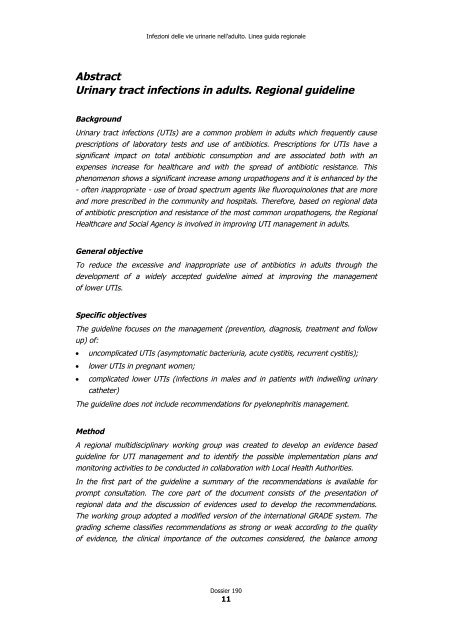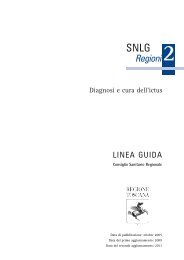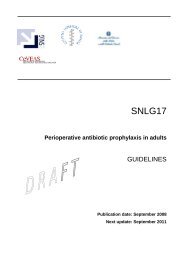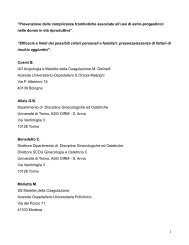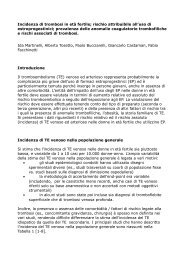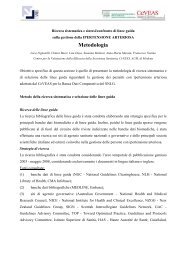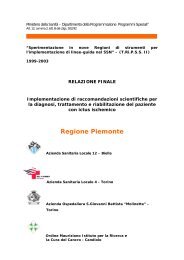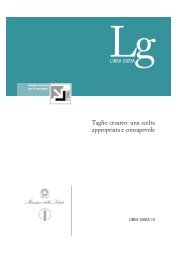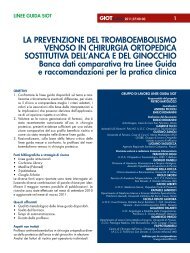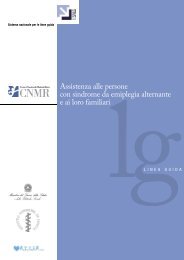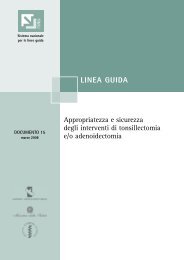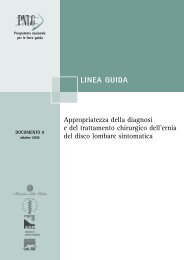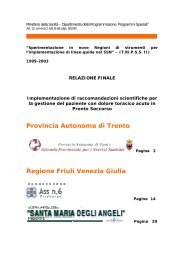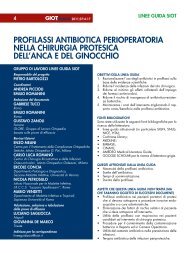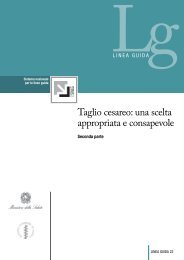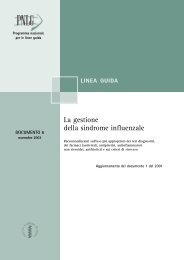Infezioni delle vie urinarie nell'adulto - SNLG-ISS
Infezioni delle vie urinarie nell'adulto - SNLG-ISS
Infezioni delle vie urinarie nell'adulto - SNLG-ISS
You also want an ePaper? Increase the reach of your titles
YUMPU automatically turns print PDFs into web optimized ePapers that Google loves.
<strong>Infezioni</strong> <strong>delle</strong> <strong>vie</strong> <strong>urinarie</strong> nell’adulto. Linea guida regionale<br />
Abstract<br />
Urinary tract infections in adults. Regional guideline<br />
Background<br />
Urinary tract infections (UTIs) are a common problem in adults which frequently cause<br />
prescriptions of laboratory tests and use of antibiotics. Prescriptions for UTIs have a<br />
significant impact on total antibiotic consumption and are associated both with an<br />
expenses increase for healthcare and with the spread of antibiotic resistance. This<br />
phenomenon shows a significant increase among uropathogens and it is enhanced by the<br />
- often inappropriate - use of broad spectrum agents like fluoroquinolones that are more<br />
and more prescribed in the community and hospitals. Therefore, based on regional data<br />
of antibiotic prescription and resistance of the most common uropathogens, the Regional<br />
Healthcare and Social Agency is involved in improving UTI management in adults.<br />
General objective<br />
To reduce the excessive and inappropriate use of antibiotics in adults through the<br />
development of a widely accepted guideline aimed at improving the management<br />
of lower UTIs.<br />
Specific objectives<br />
The guideline focuses on the management (prevention, diagnosis, treatment and follow<br />
up) of:<br />
uncomplicated UTIs (asymptomatic bacteriuria, acute cystitis, recurrent cystitis);<br />
lower UTIs in pregnant women;<br />
complicated lower UTIs (infections in males and in patients with indwelling urinary<br />
catheter)<br />
The guideline does not include recommendations for pyelonephritis management.<br />
Method<br />
A regional multidisciplinary working group was created to develop an evidence based<br />
guideline for UTI management and to identify the possible implementation plans and<br />
monitoring activities to be conducted in collaboration with Local Health Authorities.<br />
In the first part of the guideline a summary of the recommendations is available for<br />
prompt consultation. The core part of the document consists of the presentation of<br />
regional data and the discussion of evidences used to develop the recommendations.<br />
The working group adopted a modified version of the international GRADE system. The<br />
grading scheme classifies recommendations as strong or weak according to the quality<br />
of evidence, the clinical importance of the outcomes considered, the balance among<br />
Dossier 190<br />
11


